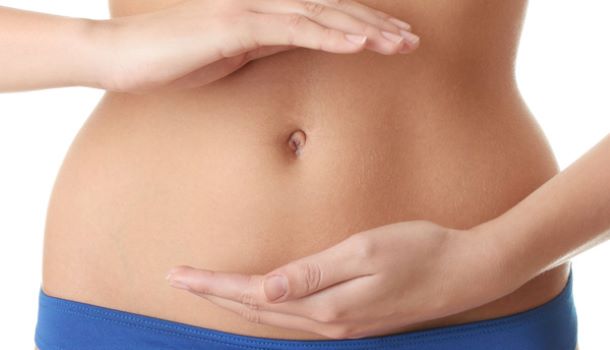
Unfortunately, hormonal imbalance in women is relatively common. Women of varying ages frequently seek help for hormone related issues: period problems, sugar cravings, fatigue, weight problems, fertility issues, low libido, sleep issues, hair loss, etc. Normally these women have had a blood test and their doctor has advised them that everything is ok. So why are they having their symptoms and feeling unwell?
Your endocrine (hormonal) system is very complex, with various glands that produce a wide range of hormones to control your body. The main ones are your
Often the hormones produced by these glands can affect some of the other glands. This means that you may have symptoms that relate to one particular gland, however those might be caused by a problem with another gland instead. So it is extremely important to understand how the different glands interact with each other.
Your pituitary gland is the main hormonal control-centre of your body. It is a small, pea-sized gland at the base of your brain, in line with the top of your nose.
The pituitary releases some hormones that act on the body directly, but its major job is controlling other hormone-producing glands in the body. It releases
Your thyroid gland controls the rate of activity of the cells of your body. So if your thyroid is overactive, most parts of your body speed up. This can cause a variety of symptoms, such as
If your thyroid is underactive, everything slows down. You could develop
As the name indicates, thyroid stimulating hormone is used to make the thyroid more active. So if your TSH levels are high it means your thyroid activity is too low, and vice-versa. However, the accepted medical range for TSH levels is very broad and often what is considered within the normal medical range is outside of what we at CNTC would consider acceptable. We frequently see women with obvious thyroid symptoms, and yet their TSH levels are within the acceptable medical range (although outside of our parameters).
The most common cause of thyroid problems is excess adrenaline.
Your adrenal glands produce adrenaline, which looks after your ‘fight or flight’ response in times of danger or stress. Adrenaline stimulates the parts of your body needed to escape danger, so :
and non-emergency areas of the body are shut down – such as the digestive system, the immune system, and the reproductive system – as these aren’t needed to escape from danger. (You may have heard of high stress situations causing a woman’s periods to stop altogether.)
The adrenal glands also produce a small amount of oestrogen and progesterone. So healthy adrenal glands are important for the balance of these hormones in the body generally.
(The adrenal glands are particularly important around menopause when the ovaries stop producing their hormones. If we look at oestrogen and progesterone as being like the fuel in a car engine, the ovaries would be the accelerator, which is used to produce more or less of these hormones depending on what the body needs at the time. The adrenals are more like the idle for your engine, which puts a small amount of fuel into the engine to keep it running. If your idle is not working properly, your car engine will be very uneven and erratic when you take your foot off the accelerator. In the same way, if your adrenals are not working well during menopause, your oestrogen and progesterone levels could become unbalanced, causing hot flushes, night sweats, and various other symptoms.)
Another way that the adrenal glands affect your reproductive hormones is that they use progesterone to manufacture cortisol, the stress hormone. So high or prolonged periods of stress can cause low progesterone levels, which indirectly causes high oestrogen levels. As we have seen already, high oestrogen levels cause the liver to produce high levels of TBG, which decreases the production of thyroid hormones to the body.
Your ovaries produce most of your oestrogen and progesterone, which are your main reproductive hormones. We have covered how your levels of these hormones can be affected by your pituitary gland and your adrenals. Some of the other causes of an imbalance in these hormones include:
Another rare cause of reproductive hormone imbalances is a misalignment of the pelvis. If the hips are rotated, or one hip is higher than the other, this can cause pressure on one or both ovaries, effecting their hormone production.
It is clear that the balancing of hormones in the body is complex. It is vital that if a woman is suffering with the symptoms of a hormone imbalance, that the wider picture is taken into account to determine what the underlying source of the problem is.
As with any condition, in order to get results it is crucial to first investigate the cause of the problem. We are currently offering a limited number of free Comprehensive Assessments. (Terms and conditions: the Assessment is a completely free service, with no obligations whatsoever.)
The Assessment helps to identify:
If you would like to book in for an Assessment, please give us a call on 3376 6911, or you can book online using the link at the top of the page.
Be well, and have a great life!
The human body is very complex, so we treat a very broad range of conditions. The following is a list of some of the conditions clients came to us for in a single week.

If you have a health issue and you would like to find out if we can help you, you can book in for a free Comprehensive Assessment. The Assessment will look at what is going on in your body, what is causing any problems, and the best way to resolve them. (Terms and conditions- the Assessment is a completely free service, with no obligations whatsoever.) Have a great life!

The medical term for painful menstrual periods is dysmenorrhea, and the pain is believed to be caused by uterine contractions. Period pain can last for just the first day of a woman’s menstruation or can go on for days. Many other symptoms can occur as well, such as PMS, bloating, acne, etc. due to fluctuations in the hormone levels. The primary regular medical treatment is to artificially regulate the cycle by use of the Oral Contraceptive Pill. Often this can provide symptomatic relief, however sometimes women can still have breakthrough bleeding and pain around their period.
The severity of the pain can vary greatly; we have seen many women who were bed-ridden for 5 days, and some even longer. Sometimes women experience pain around their ovulation as well. As well as abdominal pain, some experience pain in other areas around the start of their periods, such as lower back pain or headaches.
The ‘ideal’ menstrual cycle should occur every 28 days, with only mild or no pain. Bleeding should occur for 5 days, not be heavy or light, with no clotting, and be a healthy red colour.
Just before the start of a period, the levels of a hormone called prostaglandin rise. This triggers the muscle contractions in the uterus which expels the lining. If not working correctly, these contractions are believed to cause pain and inflammation.
Each person’s body works slightly differently, so there is no one solution for everyone. In fact, often a combination of several of the approaches below will work best.
Supplements– high potency, practitioner-level supplements can be used to
Acupuncture
Acupuncture is well-known for its ability to relieve pain. One of the common causes of period pain from an acupuncture point of view is poor blood flow in the uterus. Prior to a period there is a natural increase in blood volume in the woman’s body, and this goes down to normal levels by the end of her period. However, if there are any areas in her body where the blood flow is restricted for some reason, the blood will build-up in that area, just like city traffic at peak-hour. The blood will not be able to move properly, which will cause pain, irritation, and inflammation.
Some of the symptoms of this ‘blood stagnation’ include extremely painful periods, clots, heavy or irregular periods, a heavy sensation in the abdomen or legs, and menstrual blood that is a dark red (or even purple) in colour. Period pain caused by poor blood flow in the uterus is often relieved by heat, such as a hot water bottle.
If there are other areas of the body where the blood flow is poor, pain can occur in these areas as well when the blood volume increases before a period. The pressure, irritation and inflammation caused by the congested blood flow could result in lower back pain, headaches or breast tenderness.
Some research on Acupuncture for Period Pain
(None of these studies provide conclusive evidence of effectiveness, but they hopefully lay the groundwork for further scientific investigation.)
Other Factors
Diet, alcohol consumption, various everyday chemicals, and the Oral Contraceptive Pill can cause imbalances in women’s hormones.
The human body is incredibly complex and sometimes may not work correctly. Natural therapies aim to correct any problems with the way it is working to provide a long-term solution to the problem, rather than just treat the symptoms. (If you have a body that is working well, it is fair to say that you will have a happier and better life.)
Pain and other period symptoms are very common but are definitely not ‘normal’. If you would like to find out if a natural approach to your period problem is likely to work for you, consider booking in for a free Comprehensive Assessment at our clinic. We can then check what is going on in your body, what is causing any problems, and the best way to sort it out. (Terms and conditions- the Assessment is a completely free service, with no obligations whatsoever.) Have a great life!

Valued at $120, your Assessment will help to uncover:
All this will be fully explained to you, and you can ask as many questions as you like. That way we can be sure to give you all of the right information, understanding and advice you need. Terms and conditions: This is a free, no obligation offer.